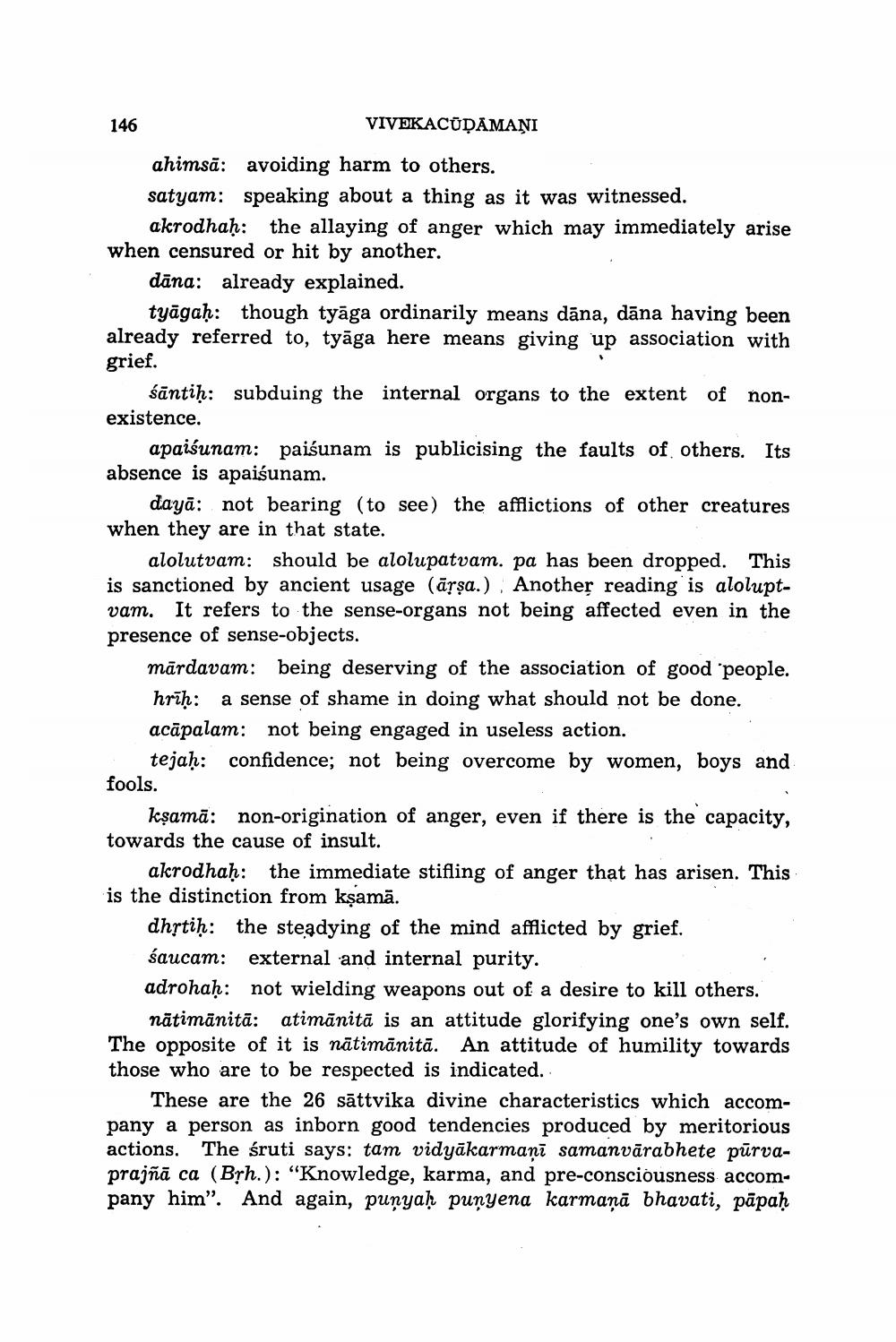________________
146
VIVEKACŪDAMAŅI
ahimsā: avoiding harm to others. satyam; speaking about a thing as it was witnessed.
akrodhaḥ: the allaying of anger which may immediately arise when censured or hit by another.
dāna: already explained.
tyāgah: though tyāga ordinarily means dāna, dāna having been already referred to, tyāga here means giving up association with grief.
śāntiḥ: subduing the internal organs to the extent of nonexistence.
apaisunam: paisunam is publicising the faults of others. Its absence is apaisunam.
dayā: not bearing (to see) the afflictions of other creatures when they are in that state.
alolutuam: should be alolupatvam. pa has been dropped. This is sanctioned by ancient usage (ārşa.) Another reading is aloluptvam. It refers to the sense-organs not being affected even in the presence of sense-objects.
mārdavam: being deserving of the association of good people. hrih: a sense of shame in doing what should not be done. acāpalam: not being engaged in useless action.
tejaḥ: confidence; not being overcome by women, boys and fools.
kşamā: non-origination of anger, even if there is the capacity, towards the cause of insult.
akrodhaḥ: the immediate stifling of anger that has arisen. This is the distinction from kşamā.
dhștih: the steadying of the mind afflicted by grief. śaucam: external and internal purity. adrohah: not wielding weapons out of a desire to kill others.
nātimānitā: atimānitā is an attitude glorifying one's own self. The opposite of it is nātimānitā. An attitude of humility towards those who are to be respected is indicated.
These are the 26 sāttvika divine characteristics which accompany a person as inborn good tendencies produced by meritorious actions. The śruti says: tam vidyākarmaṇī samanvārabhete pūrvaprajñā ca (Brh.): "Knowledge, karma, and pre-consciousness accompany him". And again, punyah punyena karmaṇā bhavati, pāpaḥ




